One of the most important decisions you’ll make when designing your garden is how to use mulch. Black mulch landscaping ideas will either be to benefit the plant or create visual interest.
Mulch creates a uniform look to your garden, adds nutrients, repels insects, and reduces weeds. Mulch also retains moisture and provides insulation during the winter months.
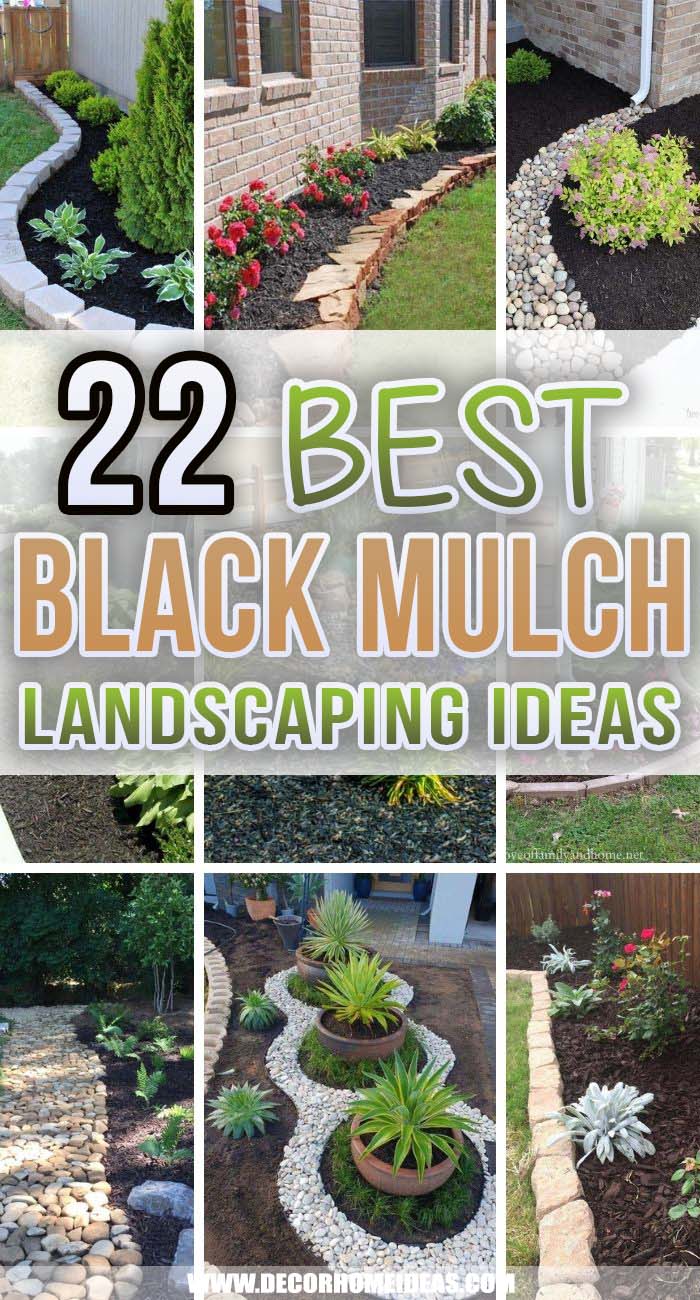
Black mulch has the added benefit of holding heat. This keeps your plants warm during cold nights in the spring when they’re trying to take root.
Mulch can be made from different materials. Organic mulch is best for the garden because it fertilizes your plants as it decomposes. Rubber mulch is good for playgrounds and other areas that are more decorative.
We’ve put together a collection of ideas you can use in your garden. You’ll find plenty of ways gardeners and landscapers use mulch here.
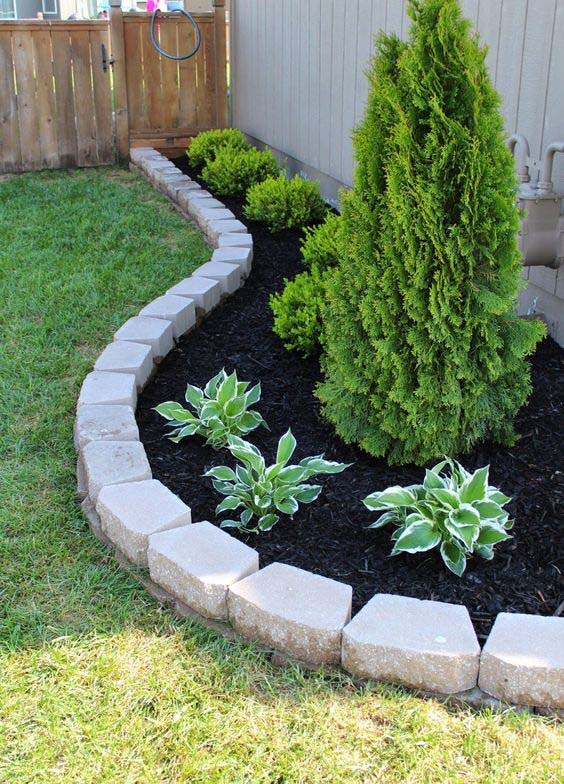
To prevent the mulch from spilling into the grass, the edge of this garden is set with precast bricks.
Adding dark mulch creates the illusion that the garden bed is deeper than it really is. Black mulch will hold heat longer than brown mulch, bringing warmth to this shady area.
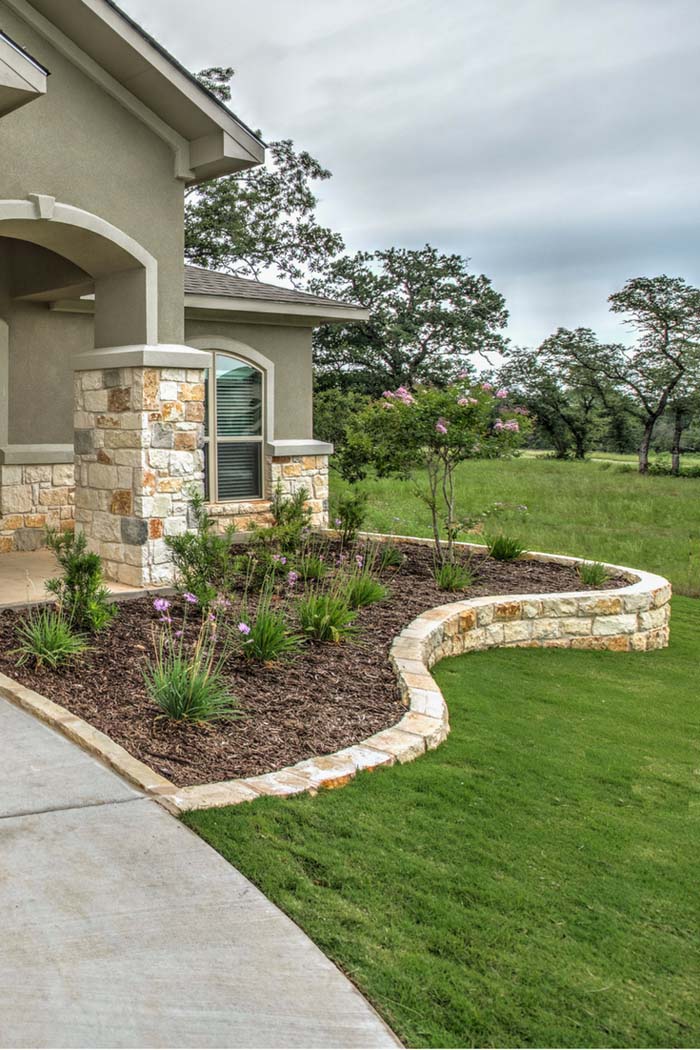
Dark mulch doesn’t have to be as black as coal. You can find deep brown mulches and mulch blends to get the right color for your garden bed.
This blend of wood chips matches some of the darker tones in the stones while still creating contrast.
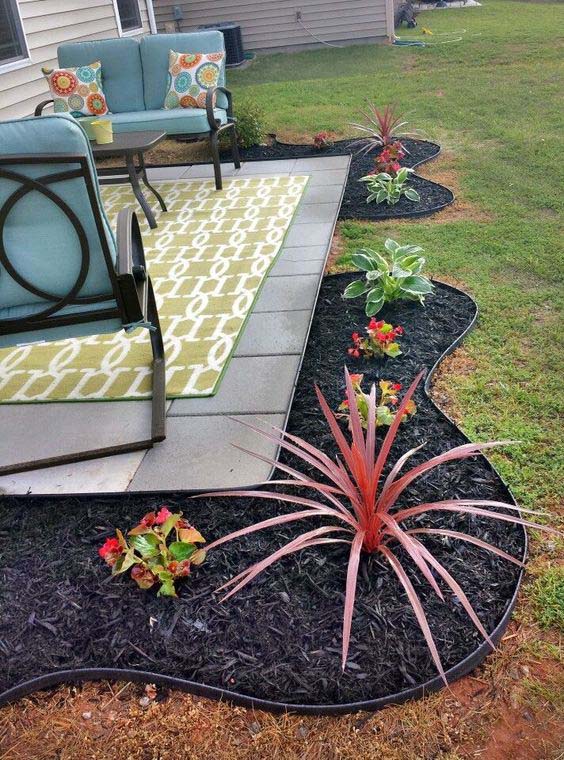
Black chips can be made with a mixture of fir and redwood. This is a good choice for informal planting and when you’re on a budget.
Plants and flowers that are red, yellow, or lavender get a big color boost from black mulch.
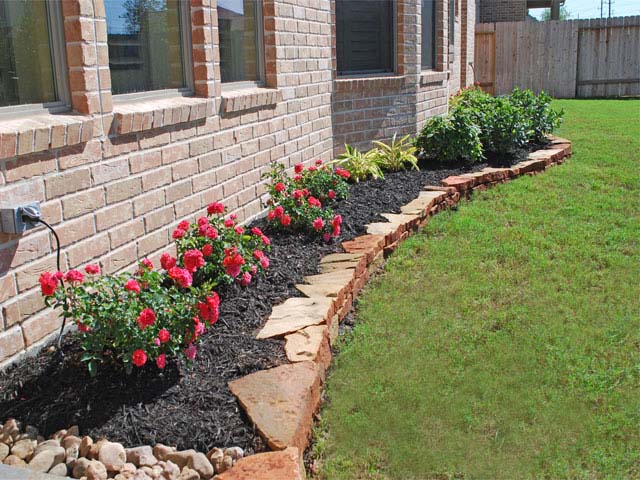
Black mulch will work in a raised garden bed. The wood mulch shown here breaks up the color between the stones and the red brick of the building.
Organic mulch provides nutrients to plants and flowers.
via Personal Touch Landscape
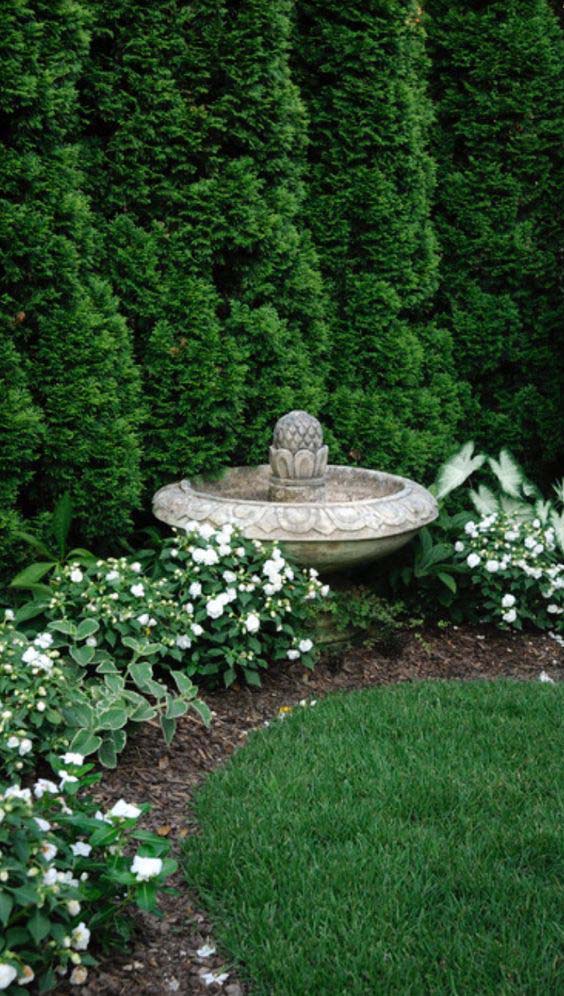
Black mulch works to brighten everything in your garden. Not only do the white flowers stand out here, the cement fountain also gets a boost. The dark, organic mulch looks natural here with the taller trees in the background.
When adding mulch, there should be a slight mound around plants. Taper the mulch at the edge of the bed.
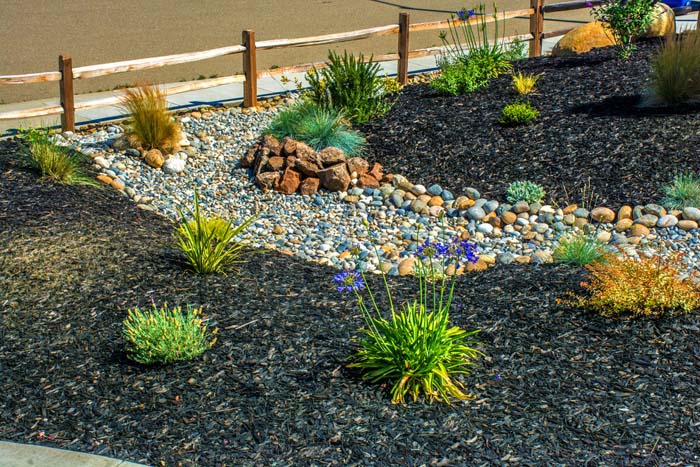
Even if you don’t have a lot of plants that need fertilizer, mulch can be used as a decorative element in your garden.
This yard uses mulch as the banks of a dry creek bed.
via AJ’s Landscaping
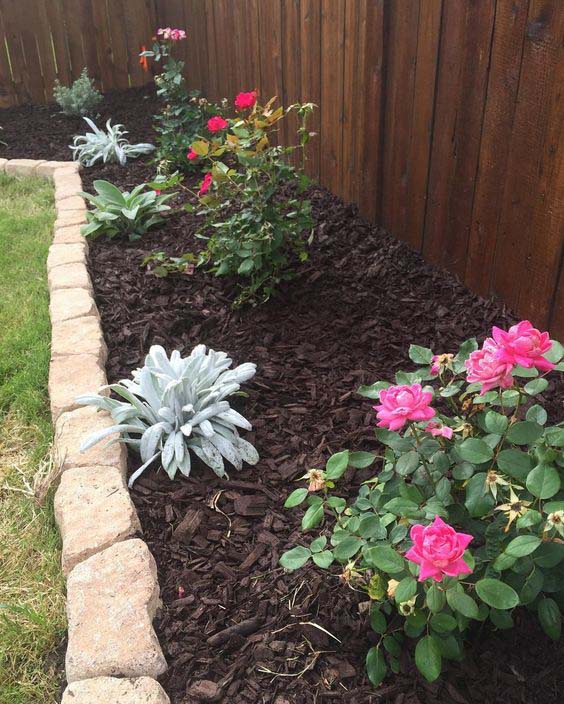
Use wood chip mulch when you’re looking to add nutrients and protection for plants and flowers.
Mulch works with both flowers and succulents.
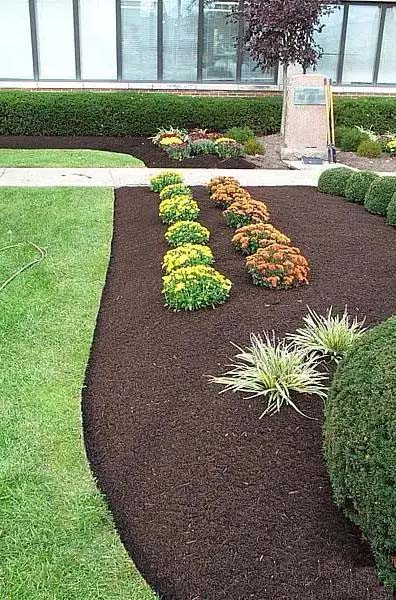
When you’re designing a formal garden, use mulch with a fine texture. It provides a nice canvas for flowers and shrubs
Fine mulch is created by shredding the same mulch two to three times. The colorant doesn’t fade as quickly as regular shredded mulch. You will need more of it to cover the same amount of space compared to a standard arbor or wood chip mulch.
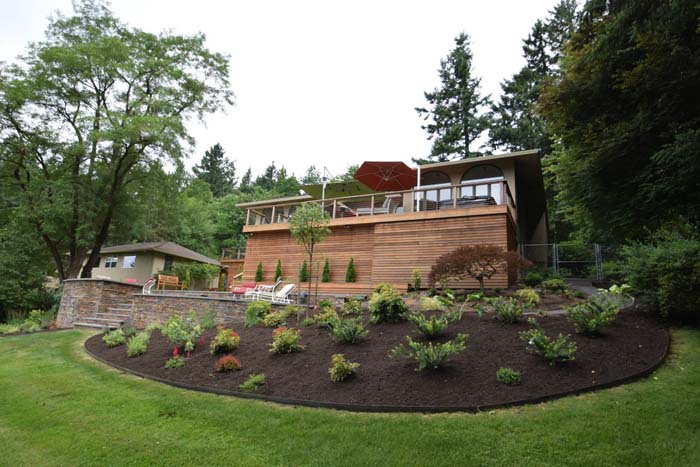
A manicured lawn and prominent garden on a slope calls for fine black mulch. It’s a nice contrast to the wall at the back of the patio.
Use rubber edging at the base of a slope to prevent mulch from scattering into the garden.
via Houzz
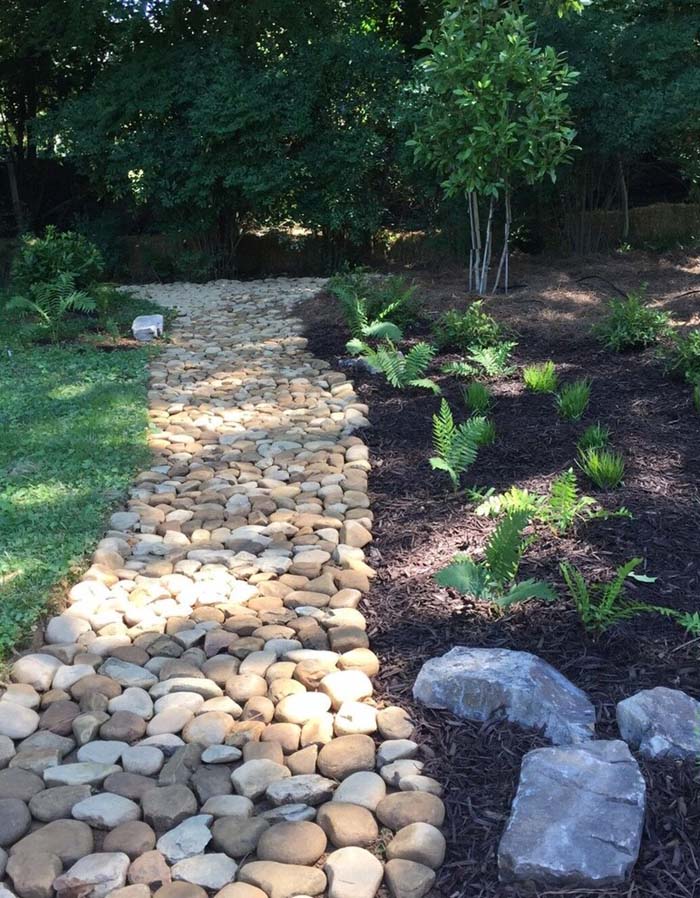
Large stones such as these can be dropped right on a bed of mulch. If your garden has a natural feel, use wood chip mulch.
It retains moisture, making it easier to cultivate plantings. The black mulch shown here allows the green plants to stand out in the shade.
via Live Oak Manors
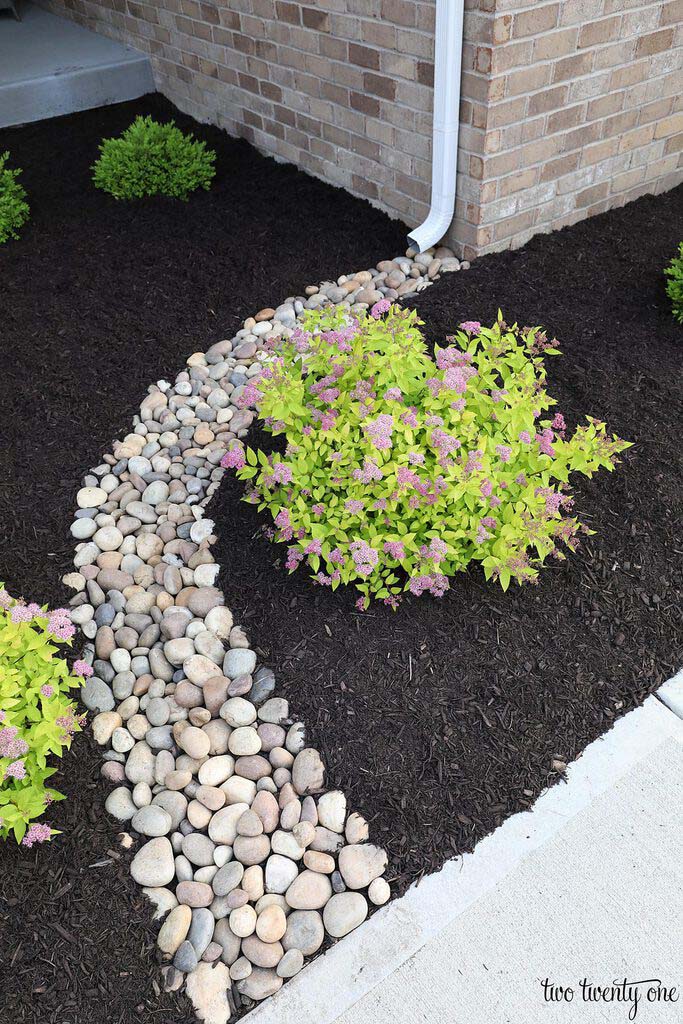
Adding black mulch under a downspout creates a muddy puddle.
Eliminate this problem by digging a channel away from the foundation. Use river rocks on top to create a functional garden feature.
via Two Twenty One
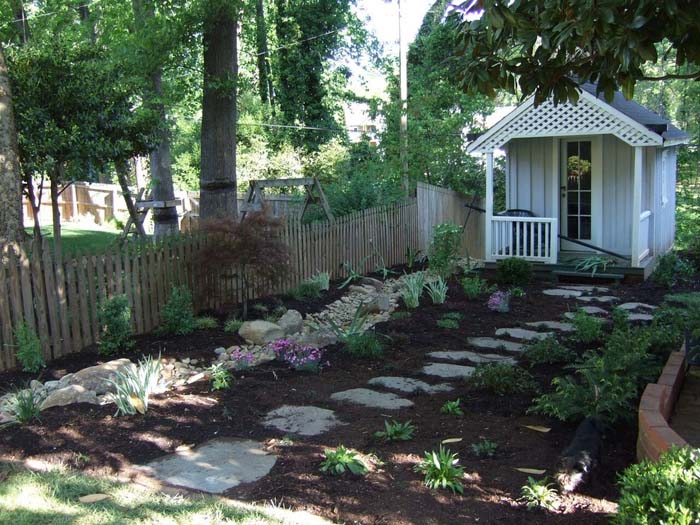
A slope dropping from a garden shed could be a problem for a grassy area. Using mulch in combination with a French drain encourages more drainage and less runoff.
Non-slip stepping stones provide a safe path among the rows of plants.
via Paragon Landscape Management
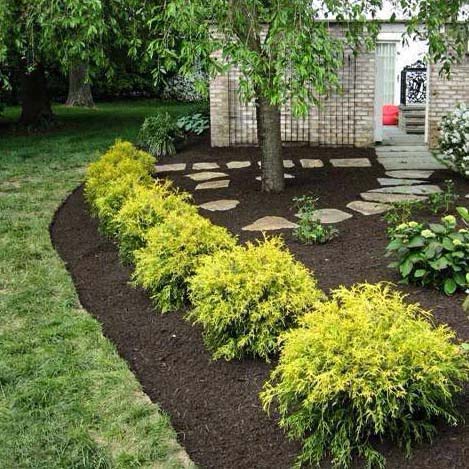
Use black mulch when you want to designate a path without dealing with gravel.
Gold mop cypress shrubs almost glow against the black arbor mulch. They lead to stepping stones floating to the entrance.
via Planting Tree
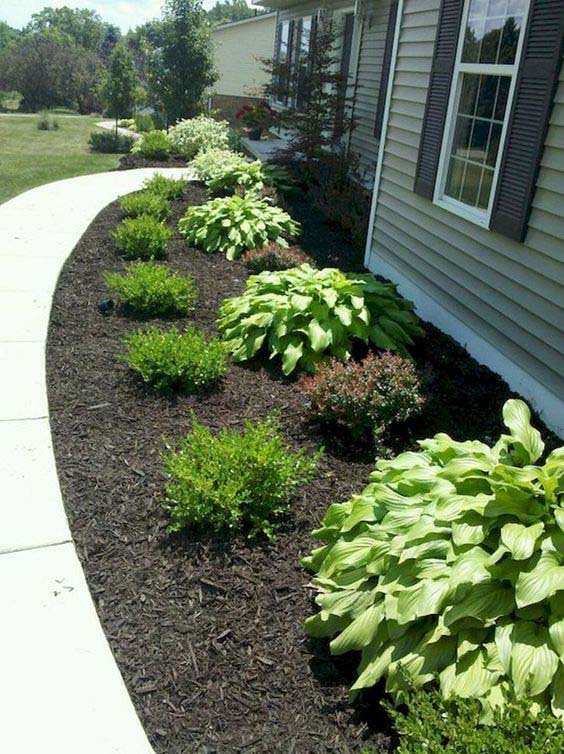
Organic mulch is the right choice for garden areas. It fertilizes the soil as it decomposes and protects plants during their winter dormancy.
As ground covering plants begin to spread, you’ll need to use less fresh mulch every season.
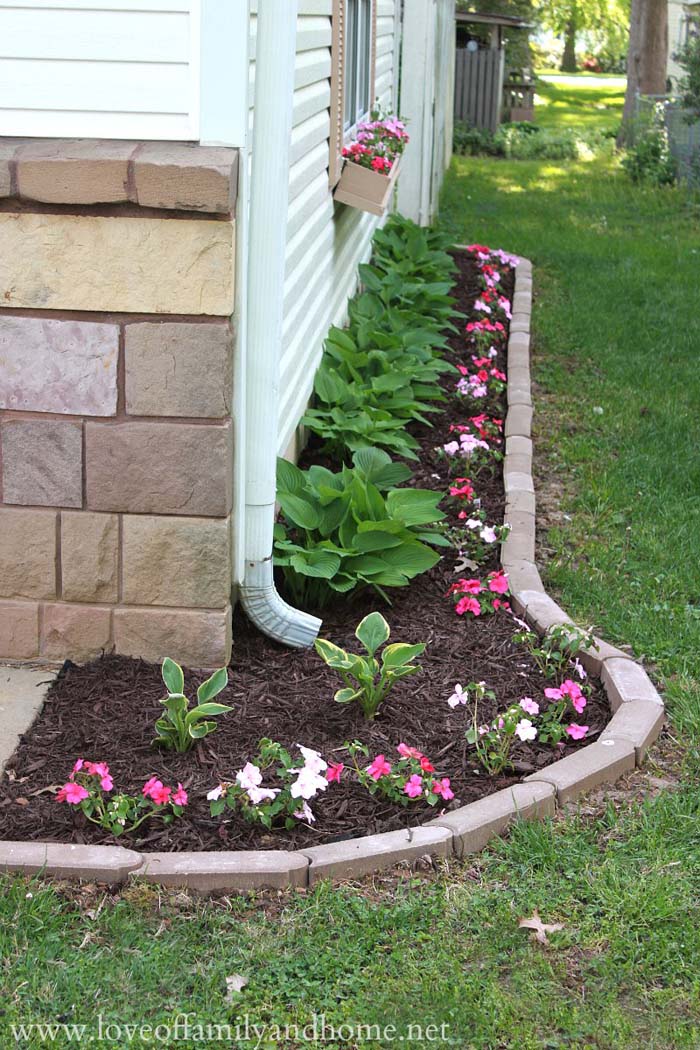
Garden edging made with precast bricks adds a clean look to a small garden on the side of the house. Use the black mulch to make the flowers pop.
The mulch here soaks up the rain that pours into the garden bed from the downspout. The high edging brick will prevent the grass from becoming over soaked.
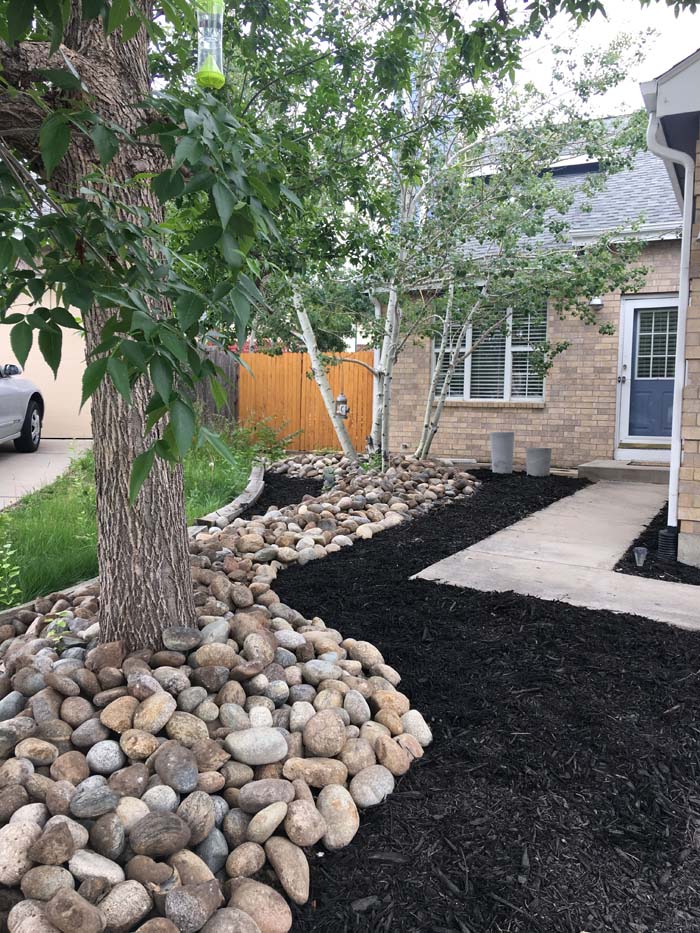
When you have a neighbor that refuses to mow their patch of grass, add a row of edging pavers to your lot line.
Then, fill your side with large rocks and black organic mulch. You’ll never have to worry about mowing the lawn again.
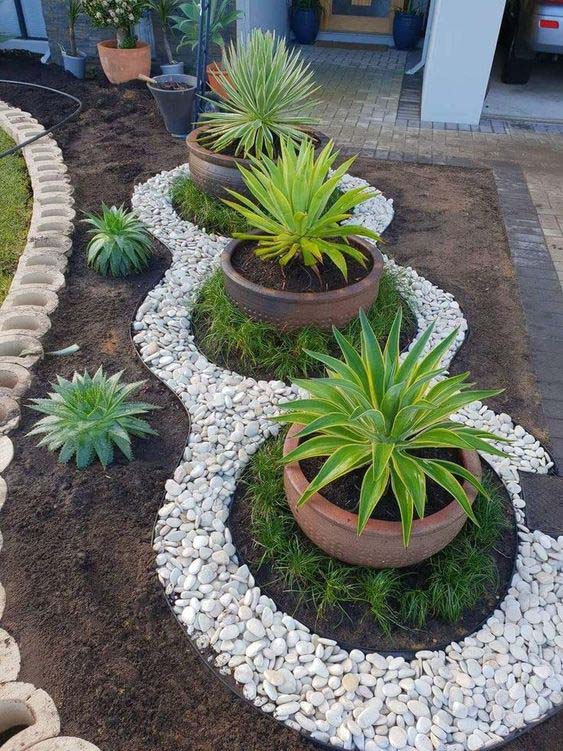
Mulch is usually set two to three inches deep. The larger plants are set in containers, so the colored mulch being added here is used primarily as a decorative element.
Its black color will make the marble chips more vibrant.
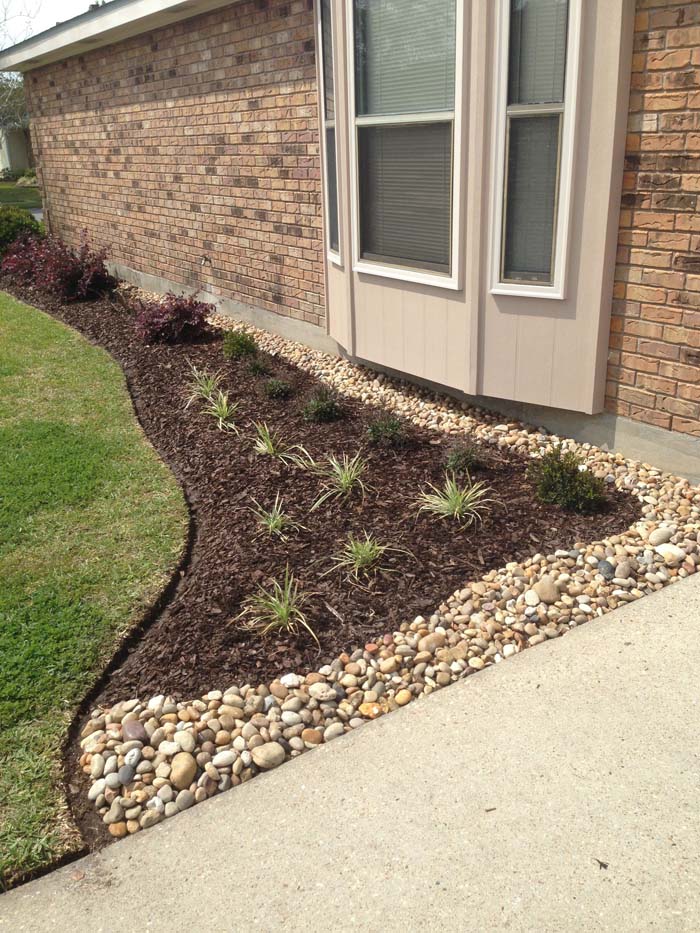
Adding black mulch right to the foundation creates problems with dirt on the cement. A bed of river rock fills in the perimeter.
This minimizes dirty water splashing onto the foundation and eliminates trying to tend plants underneath the bay window.
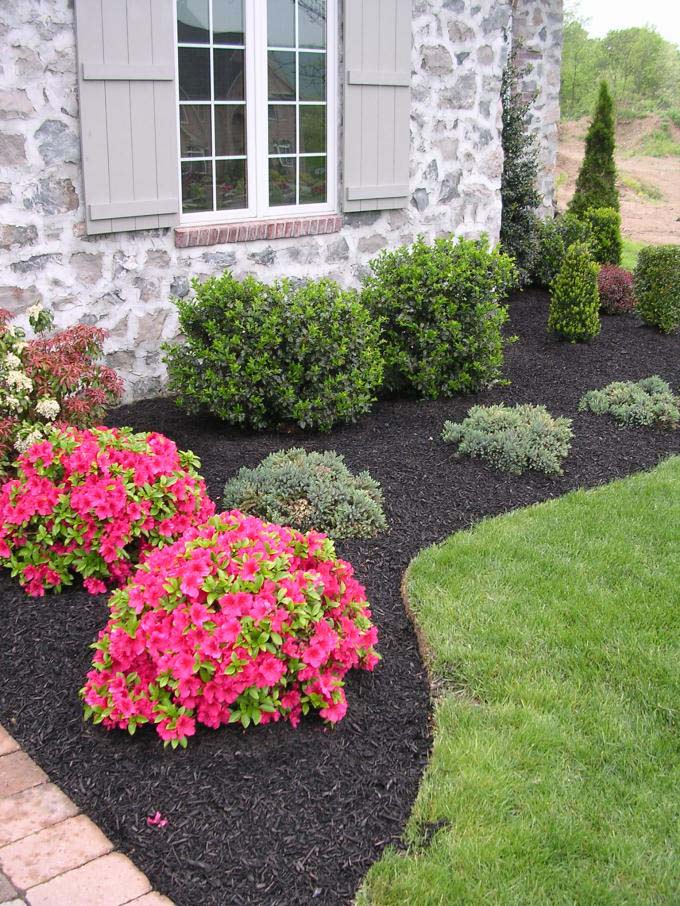
Bark mulches are usually a blend of several types of trees. These are less expensive than fine mulches and good for larger projects.
Before you add any dyed mulch to your garden beds, be sure there’s a window of 24 hours without rain in the forecast. Colored mulch needs to cure in the sunlight. Without this curing time, the dye will rinse off with the rain.
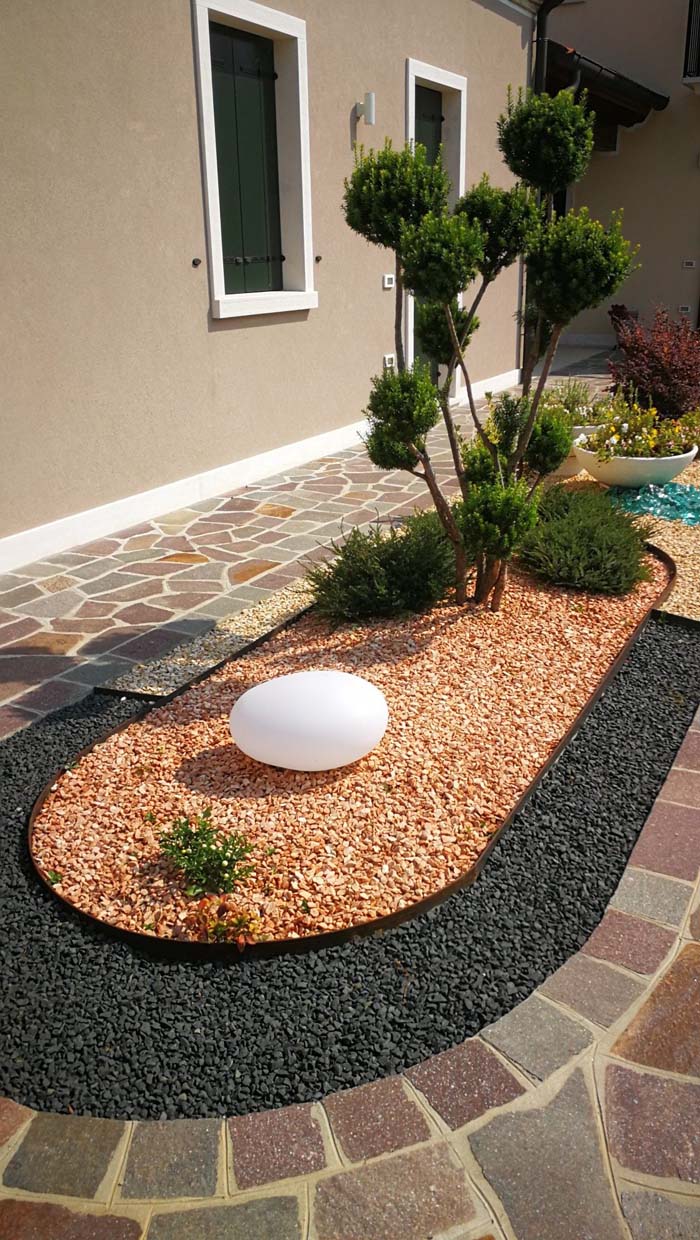
Use black rock mulch in combination with other colors to add more interest to your garden. Three different colors are used to make a statement on this patio.
The granular black mulch creates a dramatic contrast to the smooth white boulder. Juniper adds to the organic feel and was cultivated as a bonsai.
via Two Twenty One
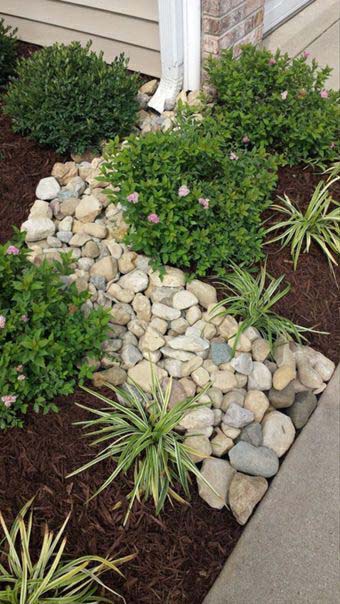
Running the mulch next to a short French drain is an effective way to control water from running to a driveway or sidewalk.


